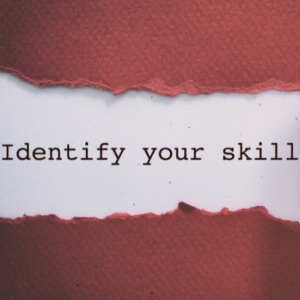Why Knowing Your Transferable Skills Grows More Important Every Day
 We continue to live in very turbulent times, especially in the world of employment. Technology advances and changes have impacted how work gets done. Consumer demand for products that they enjoy using, and ones they do not care to use any more, keeps changing. Added on top of that has been organizations and companies looking to restructure how they get work done in terms of the number of associates that they need. And, in the United States with the advent of the new administration in Washington, the number of workers employed by the Federal government, is changing each day.
We continue to live in very turbulent times, especially in the world of employment. Technology advances and changes have impacted how work gets done. Consumer demand for products that they enjoy using, and ones they do not care to use any more, keeps changing. Added on top of that has been organizations and companies looking to restructure how they get work done in terms of the number of associates that they need. And, in the United States with the advent of the new administration in Washington, the number of workers employed by the Federal government, is changing each day.
Losing one’s job is often very upsetting, especially if one has done the role for a long period of time. There has never been a time when searching for a new job has been easy. In the world of job search 2025, individuals battle computerized scanning tools of resumes and applications, competition both from the local market and from that outside of their immediate job market area, and being questioned if their skill sets are still appropriate for the industry of which they are a part.
We all possess numerous and various skill sets. Some are ones that we may have possessed all our lives, and for which we have a natural talent. Others we may have been trained in at some point in our life, whether through formal schooling or learning while performing our job. While our current employer may be aware of our skill sets and talents, other employers may not be as knowledgeable of what we may offer to their place of employment. As a result, we have both an obligation and a necessity, to be able to both identify, our transferable skills, and be able to communicate them both in our written communication and verbal communication during a job search.
So, just how do we identify and communicate our transferable skills. Just saying to an employer, I have this specific talent or that special talent, does not give the hiring company the confidence they need to offer you a job. You need to have examples of what you have done throughout your career. Better, yet, you need to be able to communicate those examples.
To start off the transferable skills identification process, one needs to ask themselves 3 basic questions. The first question is what was the situation or challenge I was asked to resolve by my past employer? The second question is what were the steps I took to resolve that challenge? The final question is what were the positive results achieved through the work that I contributed to the process? (Additionally, am I able to quantify those results in dollars made by the company, time saved on a process, or perhaps demonstrate how a process that was once manual, was now able to be done in an automated fashion).
Beyond the basic first 3 questions, are you able to build a description which one wants to be able to convey as to how they enjoy doing the work that they have done? Being able to convey details about the work environment, the co-workers with whom you collaborated and motivators to get the project done are additionally important. Applying for a job at another company, and especially in another industry, may raise a situation of “doubt” for the hiring company. Your ability to strongly demonstrate your “transferable skills” through your past accomplishments will be essential in the application and interview processes.
While you could wait until they are searching for a new job, taking the time to identify your transferable skills, it is to one’s advantage to keep a regular log of those accomplishments that they have achieved. Certainly, some will be identified through annual performance reviews. As a project is progressing or is completed, documenting one’s use of their skills to get a major part of a project done is beneficial. If you are given verbal commendations for the work you have done, pay particular attention to the words individuals are saying about your talents. And, if possible, ask others to provide Linked In recommendations of what it is like to work with you.
The world of work will continue to remain turbulent, not just through this year, but frankly it appears as time continues forward. The days of a person doing a job role for one company for a period of 30 to 40 consecutive years is a thing of a past. Knowing who both you are as a professional, and that which you are able to contribute and accomplish for a company’s cause, rests squarely on your shoulders.
